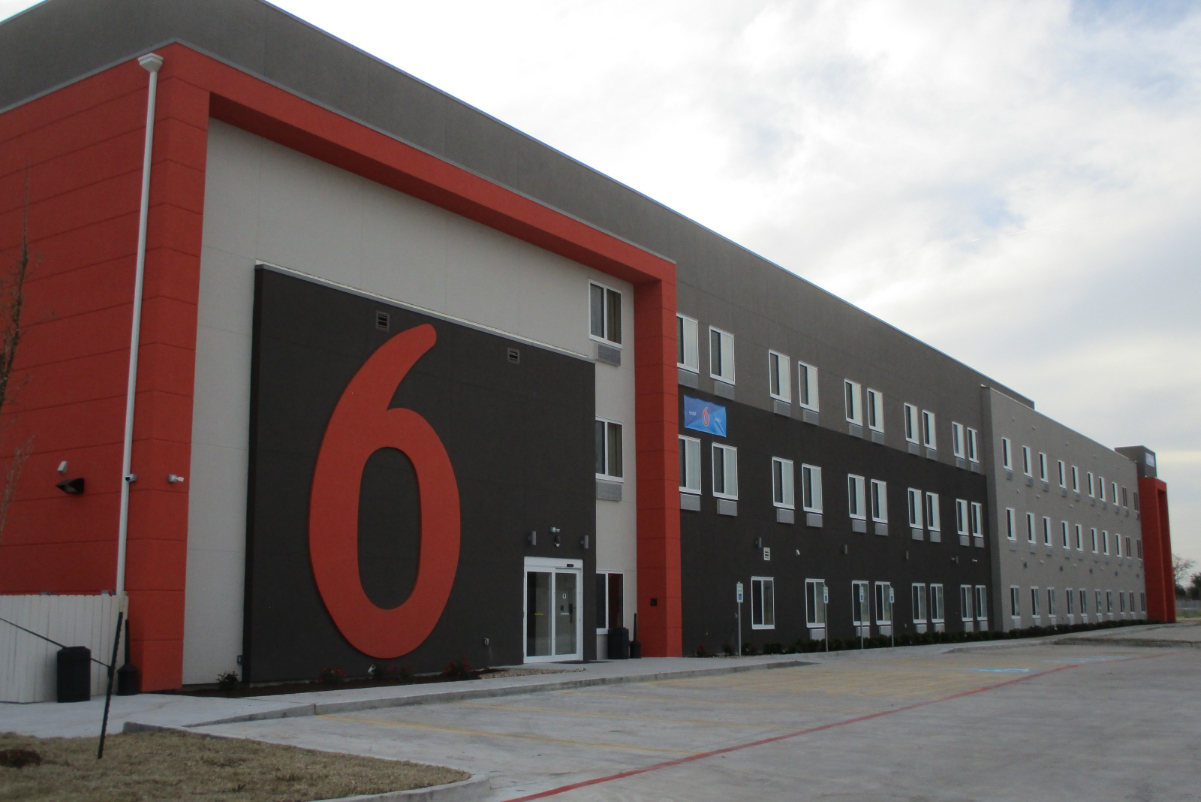Marriott’s Hotel Momentum Faces Drag From Slowdown in China and U.S. Election

Skift Take
Marriott International signaled confidence in continued growth on Wednesday, forecasting a strong overall global performance for the year despite noting some storm clouds on the horizon.
Executives highlighted a softening in China, rising caution by travelers in spending, and more-than-expected bookings weakness in November around the U.S. presidential election as developments they’re watching.
The world’s largest hotel operator said it expected its revenue per available room (RevPAR), a key sector metric, to grow between 3% and 4% this year. That represented a lowering of the top end from 5%, which had been the forecast in May.
Executives on an earnings call blamed the adjustment in outlook on greater-than-expected weakness in China. China’s RevPAR fell 4% year-over-year in the quarter.
The company also said that group bookings for the first half of November faced headwinds because of the U.S. presidential election. They also noted some trends suggesting that travelers were being more “judicious” about travel splurges.
However, Marriott’s management was broadly bullish.
“We delivered another strong quarter as travel demand remained robust in most markets around the world, and our net rooms grew by 6% year-over-year,” said Anthony Capuano, president and CEO.
China drag: Between the lines
- China is the company’s second-largest market outside of its home market and deals there typically generate a higher share of fees out of hotel owners’ revenue. “The impact of change in our outlook for Greater China has a disproportionate impact,” said Leeny Oberg, chief financial officer.
- China has been signing preferred visa deals that have benefited high-end outbound Chinese travelers, which are reflected in strong results in other Asia Pacific markets those travelers are visiting. Asia Pacific, excluding China, led the way with a 13% RevPAR increase compared to the same quarter last year.
- “RevPAR results in China since February have been very weak as China is experiencing “revenge travel” fatigue following the re-opening a year ago,” wrote Truist Securities analysts Patrick Scholes and Gregory Miller in a flash report.
- “China’s economic growth fell below expectations in the second quarter, as issues such as a prolonged property crisis, government debt, weak consumption, and high unemployment have tempered economic growth,” Truist wrote.
- Executives weren’t sure how long China’s weakness would last. “Right now, you are seeing a very, very short-term booking window kind of 1 to 3 days versus what we see around those the rest of the world, which is closer to 20 days,” Capuano said.
U.S. election drag
The upcoming U.S. presidential election is expected to impact travel patterns, potentially affecting Marriott’s performance in its home market.
“We also expect marginally lower full-year RevPAR in the U.S. and Canada than we had previously anticipated in part due to less group business, the first 2 weeks of November, given the intense focus on the U.S. presidential election,” Oberg said.
“When you look back over prior election cycles, we tended to see a little bit of roof softness the week of election,” Oberg said.
“Given the unique attributes of this election cycle, we’re seeing that bleed into the week after the election as well,” Oberg said. “So, about half of November is feeling the impact on the group side.”
Wealth gap appears
Marriott joined other companies in noting a “wealth gap” in demand.
“When you look at premium and luxury, that overall is stronger than it is at the lower chain segments,” Capuano said.
Executives said spending by leisure travelers was still growing, albiet slowly and with an emphasis on higher-end hotels and resorts.
Leisure transient, which accounted for 43% of worldwide room nights in the quarter, posted a 2% rise in RevPAR.
Capuano put that figure into context: “Over the last five years, RevPAR in the leisure segment has been up about 40%, so to continue to see quarter-over-quarter improvement in leisure RevPAR on the shoulders of that sort of recovery for us is quite encouraging.”
Hotel guests were slightly less likely to splurge on extras in the quarter.
“Ancillary spending was a hair softer than we anticipated,” Oberg said. “It does show that the consumer, in general, is perhaps being a bit more judicious about the fancy dinner. And that is really the only thing. It’s not trading down in any meaningful way.”
The trends applied across leisure and business travelers, Oberg noted.
Strong regional gains elsewhere
Marriott’s performance reflects a global travel industry still in recovery mode, with some regions outpacing others.
- Japan saw RevPAR growth of 21% year-over-year.
- Europe saw nearly nearly 10% year-over-year, with continued strong regional and cross-border demand.
- The U.S. and Canada saw RevPAR rise by 3.9%.
Marriott’s second-quarter at a glance
- Worldwide RevPAR was up 4.9%
- Net room growth was 6% year-over-year
- Total revenue for the quarter through June 30 was $6.44 billion, up about 6%.
Robust group bookings overall
Marriott’s group business showed particular strength, with RevPAR rising nearly 10% year-over-year, driven by both increased rates and higher occupancy.
Looking to 2025, group bookings were pacing 9% ahead year-over-year.
Global loyalty program expansion
Executives said that the company’s loyalty program, Marriott Bonvoy, continued to be a competitive advantage, growing to over 210 million members. The company recently announced a collaboration with Starbucks, which has already exceeded expectations regarding linked accounts.
The company saw increases in the percentage of Marriott’s guests who are also members of the Marriott Bonvoy program.
“Member penetration of global room nights rose again reaching new record highs in the second quarter at 71% in the U.S. and Canada and 65% globally,” Capuano said.
The statistics reflected the program’s popularity and effectiveness in retaining customers and encouraging repeat stays, executives implied.
Record pipeline
Marriott’s development pipeline remained robust, with approximately 3,500 properties and more than 559,000 rooms in the works globally.
The company signed nearly 31,000 rooms in the quarter. Three out of four of those were in international markets.
“We’re also in talks for StudioRes hotels in over 300 markets,” Capuano said, providing an update on the company’s latest new brand.
The company is putting less upfront capital as incentives to developers (known as key money) than it did in 2019 to get deals done.
Looking ahead, executives forecast the company’s development pipeline would rise 5.5% to 6% year over year.
Capuano noted that it was “a bit ironic,” given that China was showing weak hotel demand this year, that demand for hotel development deals in China remained robust. He called it “an interesting riddle,” but said that construction happens faster in China than in North America. All signs pointed to these deals bearing fruit soon rather than just “stacking paper” with promises, he said.
Luxury hotel expansion
Marriott execs claimed the group had extended its “global leading position in the luxury segment.” Many of the deals are conversions, meaning existing properties re-flagging to Marriott Bonvoy’s system, that were signed and went live this year.
“In June, we signed three marquee luxury conversion deals in the U.S.,” Capuano said. “The renowned resort of Pelican Hill in Newport Beach, California, and the luxury collection hotel in Manhattan Midtown have already joined our system. The iconic Turtle Bay Resort in Hawaii is joining the Ritz-Carlton brand today.”
The bottom line
While Marriott faces challenges in China and potential headwinds from the U.S. election, its strong performance in most markets and continued expansion of its loyalty program position the company well for future growth.
See Marriott International President and CEO Anthony Capuano speak on-stage at the Skift Global Forum on September 17-19 in New York City.
Accommodations Sector Stock Index Performance Year-to-Date
What am I looking at? The performance of hotels and short-term rental sector stocks within the ST200. The index includes companies publicly traded across global markets, including international and regional hotel brands, hotel REITs, hotel management companies, alternative accommodations, and timeshares.
The Skift Travel 200 (ST200) combines the financial performance of nearly 200 travel companies worth more than a trillion dollars into a single number. See more hotels and short-term rental financial sector performance.
Read the full methodology behind the Skift Travel 200.





